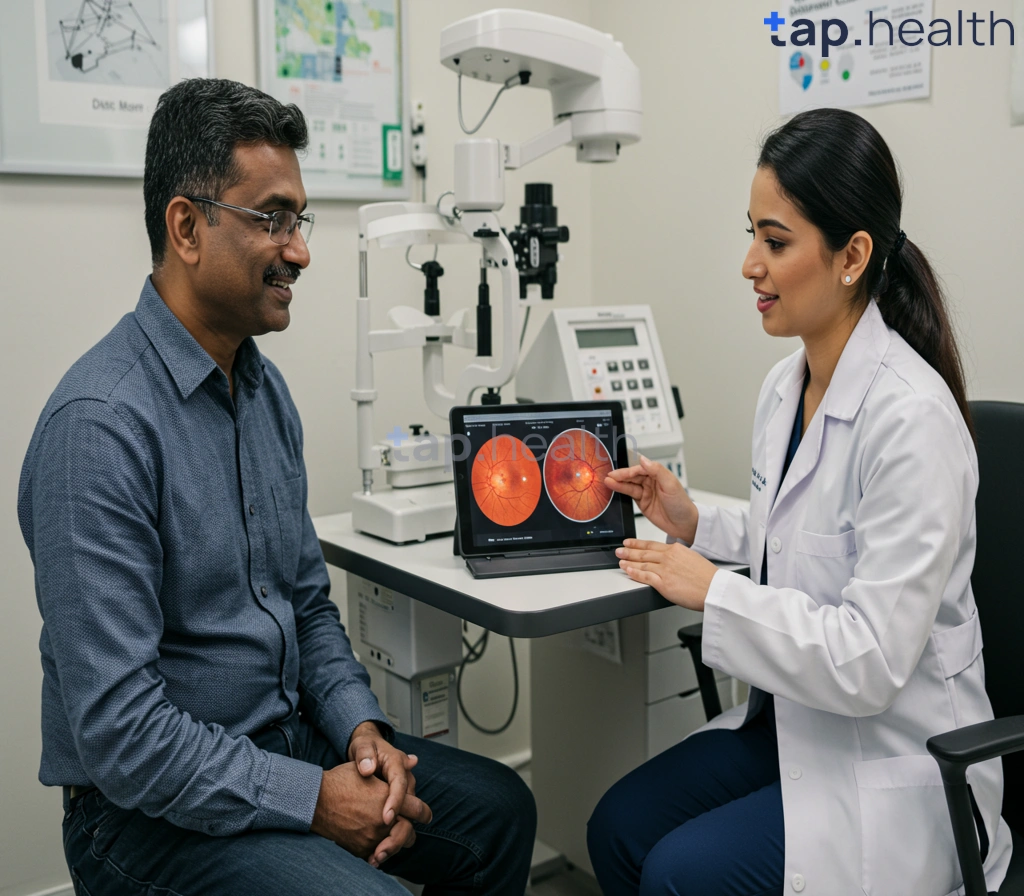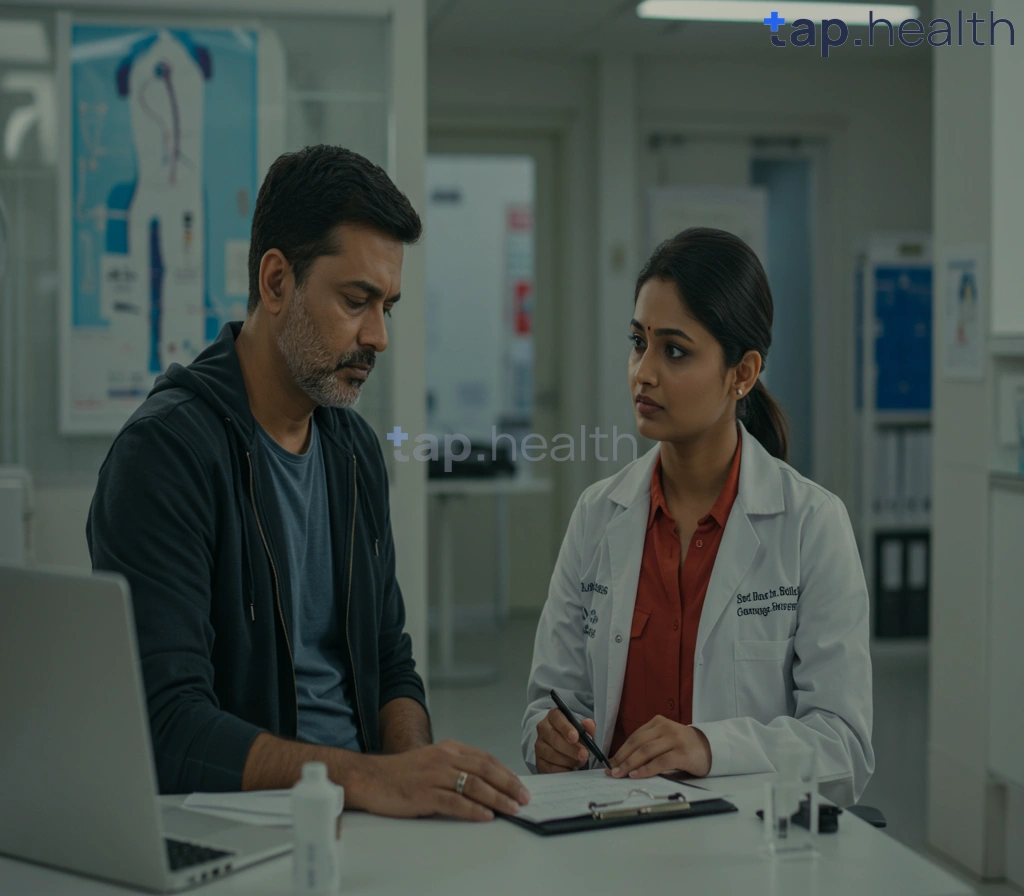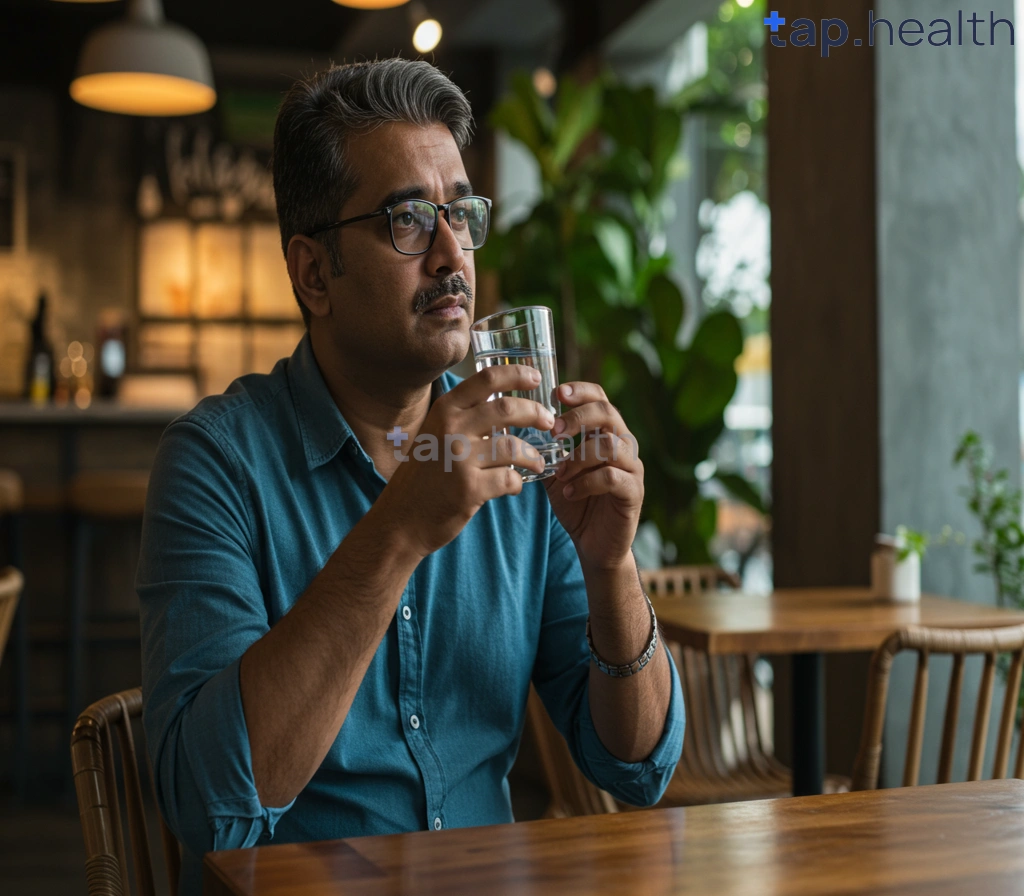Table of Contents
- Finding the Best Ophthalmologists for Diabetic Retinopathy
- Diabetic Retinopathy Specialists: Your Comprehensive Guide
- Top Hospitals & Clinics for Diabetic Retinopathy Treatment
- What to Expect: Your First Diabetic Retinopathy Doctor Visit
- Diabetic Retinopathy: Choosing the Right Eye Care Team
- Frequently Asked Questions
- References
Living with diabetes means taking proactive steps to protect your overall health, and that includes your vision. Diabetic Retinopathy: Finding the Right Doctors and Departments is a crucial topic for anyone managing this condition, as early detection and treatment are key to preventing vision loss. This blog post will guide you through the process of identifying the specialists and healthcare facilities best equipped to diagnose and manage diabetic retinopathy. We’ll cover everything from ophthalmologists and retinal specialists to the specific departments within hospitals you should seek out. Let’s get started on protecting your sight!
Finding the Best Ophthalmologists for Diabetic Retinopathy
Diabetic retinopathy is a serious complication of diabetes, affecting millions globally, and particularly prevalent in India and other tropical countries. Early detection and treatment are crucial to prevent vision loss. Given the significant impact of diabetes, including the added burden of diabetic neuropathy affecting 30-50% of patients — causing pain and reduced mobility — finding the right ophthalmologist is paramount. Choosing the right specialist can make a substantial difference in managing your eye health and overall well-being.
Identifying Qualified Specialists
When searching for an ophthalmologist specializing in diabetic retinopathy in India or tropical countries, look for doctors with specific expertise in retinal diseases. Many larger hospitals and eye clinics have dedicated retinal specialists or departments. Check for certifications and affiliations with recognized ophthalmological societies. Online reviews and recommendations can also provide valuable insights, but always verify qualifications independently. Consider seeking referrals from your primary care physician or endocrinologist.
Regional Considerations
Access to specialized care may vary across regions. In many Indian cities and larger towns, you will find well-equipped hospitals with experienced retinal specialists. However, in more rural areas, access might be limited. Researching local hospitals and clinics and potentially travelling to a larger medical center may be necessary to ensure you receive the best possible care. Remember that timely intervention is crucial in managing diabetic retinopathy. For information on recommended screening frequency, see our article on How Often is Diabetic Eye Screening?
Taking Action
Don’t delay seeking professional help. Regular eye examinations are vital for early detection and treatment of diabetic retinopathy. Begin your search today by contacting local hospitals and clinics, checking online directories, or seeking advice from your healthcare team. Your vision is precious; proactive care is essential. Learn more about protecting your vision with diabetes by reading How to Protect Your Vision with Diabetes: Essential Eye Care Tips.
Diabetic Retinopathy Specialists: Your Comprehensive Guide
Diabetic retinopathy is a serious complication of diabetes, affecting millions globally, especially in regions like India and other tropical countries. Early detection and treatment are crucial to prevent vision loss. Understanding your options for care is the first step. Nearly 30% of people with diabetes also develop diabetic nephropathy, highlighting the importance of comprehensive healthcare for managing this complex condition. This increased risk underscores the need for regular checkups with specialists who understand the interconnectedness of these conditions.
Finding the Right Doctor
In India and tropical countries, access to specialized ophthalmologists experienced in diabetic retinopathy varies. Look for doctors affiliated with reputable hospitals and eye care centers. Check for board certifications and experience in managing diabetic eye diseases. Many larger cities have dedicated retina specialists, while smaller towns may require travel to a regional center. Online searches using keywords like “diabetic retinopathy specialist [city/state] India” or “ophthalmologist diabetic retinopathy [country]” can assist you in finding potential doctors.
Essential Departments and Services
Beyond individual doctors, consider the hospital’s overall capabilities. A comprehensive eye care center should offer advanced diagnostic tools like Optical Coherence Tomography (OCT) and fluorescein angiography, essential for early detection of diabetic retinopathy. Look for facilities that offer laser treatment and other interventions as needed. If you have both diabetic retinopathy and kidney complications, finding a facility with integrated diabetes and nephrology services is beneficial for holistic management. Remember that maintaining a healthy lifestyle, including following a proper diet, is crucial. For guidance on dietary supplements, you might find our blog on Safe and Effective Dietary Supplements for Diabetes Care helpful.
Taking Action
Don’t delay seeking care. Schedule an appointment with an ophthalmologist specializing in diabetic retinopathy as soon as possible. Regular eye examinations are critical for early detection and management of this condition, ultimately safeguarding your vision. Remember to thoroughly research your options, read reviews, and ask questions to find the best care in your region. Early intervention is key to preventing vision loss and maintaining a healthy lifestyle. If you are planning any travel, be sure to check out our tips on Traveling with Diabetes: Essential Tips for a Safe & Healthy Journey to ensure your diabetes management remains consistent.
Top Hospitals & Clinics for Diabetic Retinopathy Treatment
Finding Expert Care for Diabetic Retinopathy in India and Tropical Countries
The high cost of managing diabetes, estimated at approximately INR 25,000 per year for urban Indian patients, underscores the critical need for accessible and high-quality care, especially for complications like diabetic retinopathy. Early detection and treatment are vital to preventing vision loss. This means finding the right ophthalmologist and hospital is crucial. Your choice of facility directly impacts your treatment and overall health outcomes. Managing diabetes effectively is also crucial, and understanding which medications are best for your specific needs, such as if you also have kidney disease, is important. You can read more about this in our article on Which Diabetes Drug is Best for Diabetics with Kidney Disease?
Key Considerations When Choosing a Facility
When selecting a hospital or clinic for diabetic retinopathy treatment in India and other tropical regions, consider the following: expertise in retinal diseases, availability of advanced diagnostic equipment (like OCT and fundus cameras), and a team of experienced ophthalmologists specializing in diabetic retinopathy. Look for facilities with established reputations and positive patient reviews. Geographic accessibility and affordability should also be key factors in your decision. Maintaining a healthy diet is also important for managing diabetes. Learn more about healthy food choices with our guide on 5 Best Fruits For People with Diabetics – Tap Health.
Locating Top-Tier Care
Many leading hospitals in major Indian cities and other tropical countries offer comprehensive diabetic retinopathy services. These often include specialized clinics dedicated to retinal care and experienced doctors who stay abreast of the latest treatment advancements. Researching hospitals and clinics online and reading patient testimonials will aid you in making an informed decision. Don’t hesitate to contact multiple facilities directly to inquire about their services, pricing, and the qualifications of their medical staff. Remember, proactive care is key to managing diabetic retinopathy effectively.
What to Expect: Your First Diabetic Retinopathy Doctor Visit
Your first visit to a doctor specializing in diabetic retinopathy can feel overwhelming, but understanding what to expect can ease your anxiety. The good news is early detection is key to preventing vision loss. Remember, nearly 15% of diabetics experience foot ulcers in their lifetime, highlighting the importance of overall diabetic care, including regular eye exams. This underscores the connection between managing diabetes and protecting your eyesight.
Initial Assessment and Examination
Your doctor will likely begin with a thorough review of your medical history, focusing on your diabetes management and any prior eye problems. A comprehensive eye exam will follow, including checking your visual acuity and performing a dilated retinal examination. This allows your doctor to get a clear view of your retina and detect any signs of retinopathy, such as swelling, bleeding, or the growth of abnormal blood vessels. In Indian and tropical countries, access to ophthalmologists specializing in diabetic retinopathy may vary, so it’s crucial to find a reputable specialist early.
Diagnostic Tests and Discussion
Depending on the initial assessment, further tests like optical coherence tomography (OCT) or fluorescein angiography might be recommended to get a more detailed image of your retina. Your doctor will explain the results clearly, detailing the severity of any retinopathy and discussing potential treatment options. This discussion will be crucial in forming a personalized management plan, tailored to your specific needs and health situation.
Creating a Treatment Plan and Next Steps
After the diagnosis and testing, your doctor will work with you to create a comprehensive treatment and follow-up plan. This might include lifestyle changes, medication, or, in some cases, laser treatment or surgery. Regular follow-up appointments are essential to monitor your condition and make adjustments to your treatment as needed. Finding a doctor who is easily accessible and understands the specific healthcare challenges in your region is vital for long-term eye health management. Don’t hesitate to ask questions and ensure you fully understand your treatment plan and its implications. Managing diabetes effectively is crucial, and understanding the impact of diabetes on other parts of the body, such as what medications are safe to take, is important. For example, you might want to learn more about Can a Diabetic Take Robitussin? This is just one example of how managing your overall health impacts your diabetic retinopathy. Furthermore, if you are pregnant, understanding your health is even more important. You might find it helpful to read about What to Eat Before a Gestational Diabetes Test?
Diabetic Retinopathy: Choosing the Right Eye Care Team
Diabetes affects millions globally, with a significant portion—61%—of those affected falling within the 20-64 age group, according to the International Diabetes Federation. In India and tropical countries, where diabetes prevalence is high, ensuring timely and effective eye care is crucial for preventing vision loss from diabetic retinopathy. Choosing the right ophthalmologist and healthcare team is therefore paramount.
Finding the Right Specialist
Finding a specialist experienced in diabetic retinopathy is crucial. Look for ophthalmologists specializing in vitreoretinal surgery and diabetic eye care. Many larger hospitals in urban areas have dedicated retina clinics, staffed by experienced doctors and technicians. In rural areas, you may need to travel to a larger city for specialized care. Don’t hesitate to ask about their experience with diabetic retinopathy and the technologies they utilize for diagnosis and treatment. Checking online reviews and seeking recommendations from other patients with diabetes can also be helpful.
Building Your Healthcare Team
Beyond the ophthalmologist, consider building a comprehensive eye care team. This might include an optometrist for regular eye exams, a diabetes educator to help manage your blood sugar levels, and potentially a dietician for dietary advice. Effective management of diabetes is crucial in slowing the progression of diabetic retinopathy, and as you age, managing diabetes becomes even more critical. For more information, see our blog on Managing Diabetes as You Age: Challenges and Solutions. Regular communication between these professionals ensures a holistic approach to your eye health. Remember that maintaining good oral health is also vital for overall diabetic health; read more in our article on Why Oral Health Matters for Diabetic Patients.
Accessing Care in India and Tropical Countries
In many Indian and tropical countries, access to specialized eye care can be a challenge. Explore government-run eye hospitals and clinics, which often provide affordable or subsidized treatment. Many NGOs also offer support and resources for people with diabetes, including assistance in accessing eye care. Proactive management, regular check-ups, and a strong support network are essential for maintaining good eye health in these regions.
Frequently Asked Questions on Diabetic Retinopathy
Q1. What is diabetic retinopathy and why is early detection important?
Diabetic retinopathy is a serious complication of diabetes that can lead to vision loss. Early detection and treatment are crucial to prevent vision impairment or blindness.
Q2. How do I find a qualified ophthalmologist specializing in diabetic retinopathy, particularly in India?
In India, look for ophthalmologists with certifications and experience in retinal diseases. Larger hospitals often have dedicated retinal specialists. You can also use online resources to find qualified doctors and check their affiliations.
Q3. What kind of diagnostic tools and treatments should I expect from a comprehensive eye care center?
Comprehensive centers utilize advanced tools like OCT and fluorescein angiography for diagnosis and offer treatments such as laser therapy.
Q4. What other healthcare professionals should be part of my diabetic retinopathy care team?
For holistic management, work with an optometrist, diabetes educator, and dietician in addition to your ophthalmologist.
Q5. How can I prevent vision loss from diabetic retinopathy?
Regular eye exams, proactive care, and effective diabetes management (including diet and medication) are essential in preventing vision loss from diabetic retinopathy.
References
- Diabetic Retinopathy Classification from Retinal Images using Machine Learning Approaches: https://arxiv.org/pdf/2412.02265
- Diabetic Retinopathy Detection Using CNN with Residual Block with DCGAN: https://arxiv.org/pdf/2501.02300




